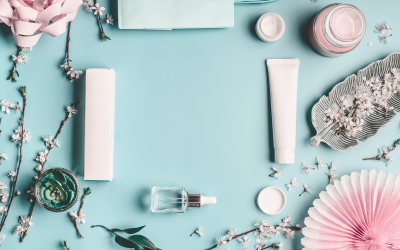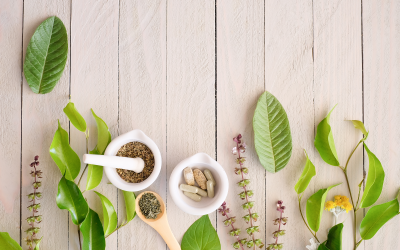Tattoo Skin Health
If you have a tattoo, you already know two things: one, that there’s nothing more fun than rocking who you are and what you love to the world and two, that skincare and skin health is super important. While having a tattoo in and of itself is not necessarily an unhealthy or risky thing, there are certain aspects of skincare you should be a little more aware of and ready to take care of.
First things first: just how does a tattoo work? Is it going to lead to sensitive skin? Well, the short answer is: yes. Right after getting the tattoo done, the skin is technically wounded. What does that mean? The potential for itching, redness, inflammation, and sensitivity. During the initial healing process you won’t want to perform many skincare services in the area during that time. If you feel burning and itching to distraction, an all-natural cooling Calming Aloe Vera Gelis your best bet to soothe irritated skin.
Be sure to follow all instructions your tattoo artist gives you. And, most importantly, be sure you are selecting a reputable tattoo artist from a reputable tattoo parlor. After the tattooing, be sure to not pick or scratch at your new piece and be sure to wear loose-fitting clothing. Showering post-tattooing is perfectly fine, but avoid baths or submersion in swimming pools and lakes until it has healed. Please note that typical healing times can last up to two weeks.
As another important note, when choosing the location on your body to get the tattoo, you should take care to avoid areas of skin that have moles. It may sound simple and silly, but tattoos can actually make it difficult to catch the earliest signs of skin cancer – signs such as moles. Don’t cover them up – get them checked out!
After the initial swelling and redness has subsided, and the risk for infection is gone, the tattooed area may be prone to drying out, so a good moisturizing cream might be in order. Select something that is, again, full of natural ingredients. Is all that dry skin becoming rough? Keep it soft with a lotion that utilizes minerals, aloe, and natural oils to soften the skin, like Jericho’s Body Lotion Sheer Embrace.
With any lotion or body care product you select, make sure it does not contain any chemical additives or artificial dyes, fragrances, colorings, etc. You don’t’ want anything clogging up the skin’s pores or irritating your already sensitive skin in the area!
You will also want to keep your skin hydrated and supple, both before and after the tattooing. Sun damage, for one, can lead to the hardening and wrinkling of the skin as the collagen decreases. If the skin is not kept exfoliated, hydrated and properly cared for, not only will the tattoo dull due to natural cell regeneration, but also the new epidermal layers can look dull, dry and all-around unconducive to a vibrant tattoo.
Drink plenty of water, too! Staying hydrated from the inside on out is very important.
Something to avoid? Petroleum-based lotions and creams. Petroleum can actually fade tattoo ink and so, while hydrating your skin, will have the opposite desired effect when it comes to protecting your art.
Hydrating serums, moisturizers and aloe gels that make use of natural enzymes and minerals. And most important of all? UV protection, UV protection, UV protection. Blocking yourself from harmful rays means you won’t have to worry about post-damage repair if it never happens. That means slathering on the sunscreen (recommended SPF 30 or higher, preferably) before venturing outside once your tattoo has fully healed. This extends to more than just avoiding direct sunlight, though – refrain from using tanning beds and sunlamps.
As much as we don’t like it, there are some skin focused risks associated with getting a tattoo. Be sure you are aware of the possibilities ahead of time including:
- Allergic reactions: The dye in tattoos can cause reactions on a spectrum anywhere from slight itching to an intense rash.
- Skin irritations: Inflammation is a common effect of tattooing. At times a granuloma can even occur, or keloids can develop from scar tissue.
- Skin infections: Always a risk when involving puncturing skin and injecting a foreign substance.
There are plenty of things to know about getting a tattoo and plenty of skincare steps you can take to ensure you stay safe, healthy and vibrant. And while it may seem like there’s a lot to do, in actuality, there aren’t that many complicated or ‘out there’ steps. Just stay hydrated, use natural ingredient based products, protect your skin from sun damage – the usual! So, go out there and tattoo happily and feel good and informed about it every step of the way.
5 Short Skincare Routines to Do While Doing Chores
It's the season to… Multitask! While your holiday comes to a close, you can squeeze in some much-needed skincare while...
Makeup and Skincare DIY to Make You Look Younger
Parties and family gatherings and photos galore – which has some of us running for the hills – or at least the beauty...
The Cult Craze of Hemp Infused Products
You’ve surely heard it from all over: hemp this, CBD that – suddenly, cannabis and hemp infuse products have become...



